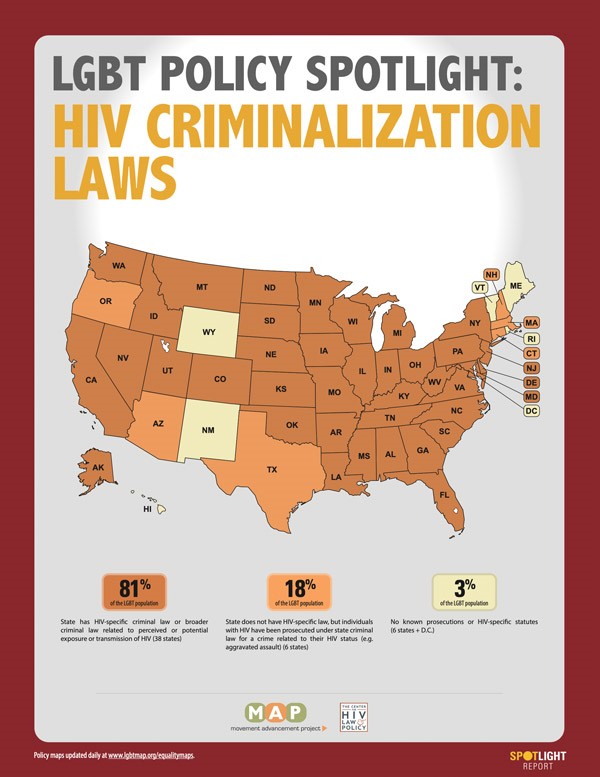The Bottom Line
LGBT Policy Spotlight: HIV Criminalization Laws examines the problematic basis for HIV criminalization laws and their detriment to public health and the justice system. Ignoring modern medical knowledge, these laws carry harsh penalties such as 35-year prison terms and registration as a sex offender for behaviors now known to carry no risk of transmission. These laws perpetuate dangerous stigma and misinformation about the disease and people living with HIV, create a strong disincentive for individuals to find out their HIV status, and disproportionately target LGBT people. The report includes commonsense policy recommendations to reduce the harmful consequences of such laws and encourages states to modernize or repeal their HIV criminalization laws.
This report is part of an ongoing series that provides in-depth analyses of laws and policies tracked at the Movement Advancement Project’s Equality Maps. The information in this report is current as of the date of publication; the online maps are updated daily.
LGBT Policy Spotlight: HIV Criminalization LawsDownload
Recommended citation:
Movement Advancement Project and Center for HIV Law & Policy. December 2016.
LGBT Policy Spotlight: HIV Criminalization Laws.
https://www.lgbtmap.org/policy-and-issue-analysis/policy-spotlight-HIV-criminalization (date of access).


